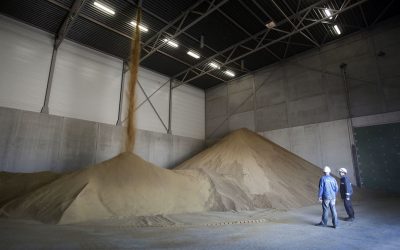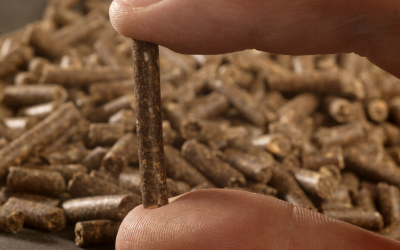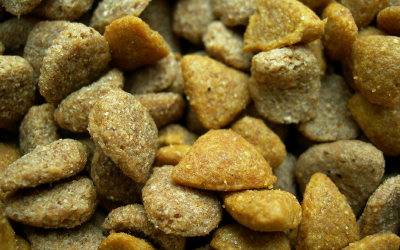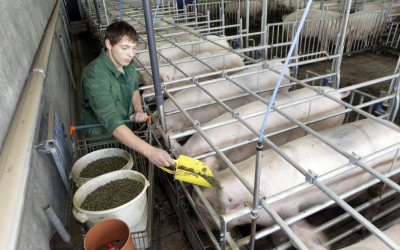Bio energy: a new market for by products
Due to the increased quality and safety rules in the animal feed industry, there is less room to use incidental by products from the human food industry. According to a recent study by Rikilt (part of Wageningen UR), these by products can also be used to generate energy.
systems, based on HACCP. The use of incidental by products within this system is
often difficult because the diversity of the sectors that offer the by products
and the variety of the production processes is too big.
Alternatives
A sustainable option to use the by products is to
use them in generating energy. Different techniques are available that can
convert bio mass in energy. Which technology should be used for certain by
products cannot be given because the flow of by products is not continuous and
differ in composition each time. It is possible to say something about which
technique is best for a certain group of by products.
By products from
the grain, potato, sugar and dairy industry are the most suitable for
fermentation processes. Meat and bone meal and fats are suitable for thermal
conversion processes and for the production of methane. In the near future,
these fats will also be used in the production of bio fuels.
Continuous, high supply
The Dutch government and
others see the potential of this trend of converting incidental by products from
the food industry into energy. However, to do so, it needs a continuous and high
quality supply of these products. This is not yet very clear. Clear product
specifications for bio mass are also lacking, which makes the source, quality
and use of these products not always clear. A continuous supply is not easy to
accomplish. Adding the incidental by products to the large bulk volumes of bio
mass (such as wood waste, peanut shells) could be a solution.
Cooperation
To have a clear view of the available
supply and demand of incidental by products, cooperation between all the
companies involved is very important. The ideal picture is that a convenant will
be made between these companies which will leas to a cheap alternative to use
the by products for bio energy.
Related links:
RIKILT
AllAbout Bio Energy
To subscribe to the
free AllAboutFeed newsletter click here.











